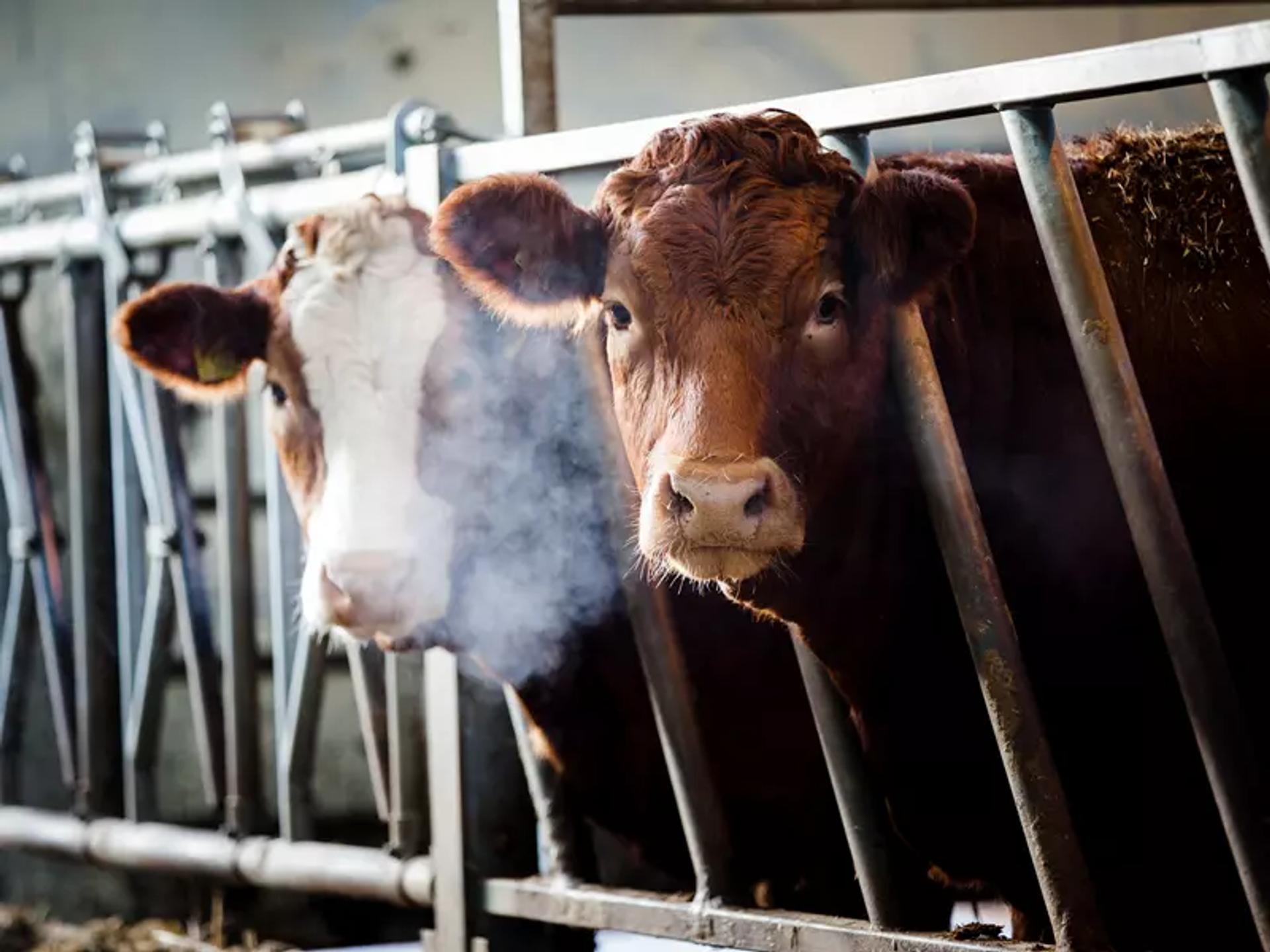UK-US trade deal: why we must protect UK animal welfare standards
By Kate Parkes, farmed animal welfare scientist, RSPCA

When I hear talk of a new UK-US trade deal, my mind immediately goes to the animals I work with every day.
As a farmed animal welfare scientist at the RSPCA, I know that trade agreements don’t just affect business and the economy – they can also affect the lives of millions of animals.
Cheap imports produced to lower welfare standards than those we expect in the UK could have real consequences for the hens, pigs, cattle and other animals I care about.
That’s why it’s so important to understand what’s at stake and why we must protect our welfare standards.
A new trade deal could create business opportunities, but it also raises serious concerns about the welfare of farmed animals and the future of British farming.
At RSPCA Assured and the RSPCA, we believe trade should never come at the cost of animal welfare.
Cheap food imports produced to standards lower than the UK’s risk undermining both animal welfare and the livelihoods of UK farmers.
Why we’re worried about a UK-US trade deal
Food from the USA can be produced in ways that would be illegal here.
This includes:
- Battery cages for hens – banned in the UK since 2012
- Sow stalls for pigs – banned in the UK since 1999
- Farrowing crates – still used widely in the US and on many UK farms, but not allowed on RSPCA Assured-certified farms
- Chlorine-washed chicken – banned in the UK and EU since 1997
- Hormone-treated beef – banned here since 1989
- Long live transport journeys – animals in the US can be transported for up to 36 hours without food or water, compared with a strict eight-hour maximum limit for land animals under the RSPCA Assured scheme.
These differences show why we need strong safeguards in trade agreements.
Allowing lower-welfare imports could trigger a ‘race to the bottom’, where price wins out over welfare.
Chlorinated chicken and hormone-treated beef
You may have seen these terms in the news. Here’s what they mean:
- Chlorinated chicken: in the US, chicken is washed in chlorine to kill bacteria. In the UK, the law requires higher hygiene and welfare standards at every stage, rather than trying to ‘clean up’ after poor practices at the end
- Hormone-treated beef: growth hormones are used in US beef production, often in ‘feedlots’ where cattle are kept in barren conditions with little space. UK and EU law has banned this for more than 20 years, due to both animal welfare and health concerns.
While only small amounts of US beef are currently imported, the tariff-free quota has increased from 1,000 to 13,000 tonnes per year.
Although the import of hormone-treated beef remains banned, there are still worries that imported beef may be produced to far lower standards than those expected in the UK.
What’s at stake for animal welfare
If lower-welfare meat is allowed into the UK market, it could undercut UK farmers on price.
That risks reversing hard-won progress on the number of animals being reared to higher welfare standards in the UK – at a time when more shoppers than ever are saying they want higher-welfare food.
What we want from the UK government
At the RSPCA, we’re urging the government to keep its promises and make sure no trade deal lowers UK animal welfare standards.
That means:
- Ensuring food from animals reared in conditions illegal in the UK will not be allowed
- Supporting farmers who are already raising standards rather than opening the door to low-welfare imports
- Recognising animal sentience in trade agreements.
The UK has already agreed under its EU deal not to weaken animal health or food standards in trade agreements. Now it must do the same with the US.
How you can help protect farmed animals
Every time you shop, you have the power to support higher welfare.
If you eat meat, fish, eggs or dairy, by choosing products with the RSPCA Assured label, you know the animals were reared to strict welfare standards.
That choice supports farmers who care about animal welfare and sends a clear message that high standards matter.
Together, we can help protect UK animal welfare standards from being weakened by trade deals – and create a food system that always puts animals first.
Frequently asked questions
Are there any upcoming changes in UK trade policy that might affect animal welfare?
Yes, trade negotiations are ongoing. These agreements must require imports to either meet or exceed current UK animal welfare standards.
Can UK farmers compete with lower-welfare imports?
UK farmers who care for their animals to higher welfare standards can face higher costs, so cheaper imports could undercut them on price. You can help by choosing RSPCA Assured products when you buy meat, fish, eggs and dairy products.
Could imported US meat be sold in UK supermarkets without clear labelling?
Potentially, yes. Without strict trade safeguards, shoppers may unknowingly purchase food that’s been produced in ways that would be illegal in the UK. If you eat meat, fish, eggs or dairy, look for the RSPCA Assured label so you know the animals were cared for to higher welfare standards.
Tuesday 30 September 2025